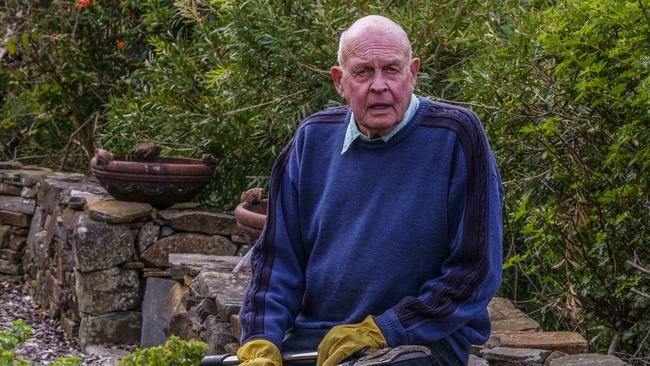ALP franking credit plan on nose in key Tasmanian marginals
A growing revolt at Labor’s franking credits policy could cost it two key marginal seats in Tasmania.

A growing revolt at Labor’s franking credits policy is threatening to cost it two key marginal seats in Tasmania, as MP Justine Keay revealed she took concerns about the plan to the ALP frontbench.
In Tasmania’s knife-edge northern electorates, where the political contest can swing on a handful of votes, Labor has alienated as many as 7000 voters over its policy to remove franking credit tax refunds, a key part of many retirees’ income.
An estimated 3700 voters are impacted in Braddon, where a uCommons poll earlier in the campaign had Liberal candidate Gavin Pearce leading sitting Labor MP Justine Keay 51-49 per cent on a two-party-preferred basis.
A further 3600 retirees are said to be impacted in Bass, which Newspoll yesterday showed Labor holding 52-48 per cent two-party-preferred, despite a big swing to the Liberals. Some polls point to a possible Liberal win.
Anne Sadler, the president of the north Tasmania branch of the non-party-political Association of Independent Retirees, said “not many” retirees in the region would still be open to voting Labor, due to the policy.
“There is an enormous number of people badly affected,” Ms Sadler said. “Bill Shorten suggests we are the top end of town but we’re not, and that really hurts. We are just ordinary people who as a result of this are not sleeping at night, worried and concerned about our retirement income.”
Ms Sadler and husband Tim, who live in the Labor-held marginal electorate of Lyons, stand to lose 30 per cent of their retirement income under Labor’s policy.
In Lyons, which Labor’s Brian Mitchell holds by 3.8 per cent, Liberal candidate Jessica Whelan was disendorsed over anti-Islamic social media posts. But the Nationals and now independent Ms Whelan insist it is still in play.
Further north in Bass, which Labor holds with a margin of 5.4 per cent, and Braddon, Labor’s with a 1.7 per cent margin, retirees are increasingly vocal, storming into MPs’ offices and asking pointed questions at candidate forums.
“We’re going to lose $14,000 a year in franking credits. For all the taxes we’ve paid all our lives, we’re going to get a 20 per cent decrease in our income,” said Launceston resident and Bass voter Shane Dennington. “Bill Shorten is calling it a gift. It’s not a gift.”
After 45 years working, mostly self-employed in retail and wholesaling, he and wife Jenny, a retired aged-care worker, are angry. “I’m sick of being called a rich bastard by Labor,” Mr Dennington said.
The couple, in their mid-70s, say without the $14,000 in franking credits they would have to eat into their nest-egg, further eroding their income at a time when low interest rates made it impossible to survive on interest alone.
In neighbouring Braddon, fellow retirees John and Philippa Gray, of Port Sorell, fear the loss of $3000-$3500 a year in franking credits.
“It’s probably 10 per cent of our income — we will have to cut back on expenditure and eat into our savings,” said Mr Gray, 75.
The couple had been in “mixed minds” about which party to back. “But with Labor coming up with this policy, it definitely swings our vote,” he said.
Sitting Labor MPs Justine Keay in Braddon and Ross Hart in Bass defend the policy, arguing it was about “priorities”, with the $6 billion saved allowing greater expenditure on health and education.
But Ms Keay did not deny the policy was harming her chances of holding the seat. “I have had people contact me about franking credits,” she said. “I think where you have a significant number of people on lower incomes and retirement incomes (it will be an issue).”
She had lobbied Labor’s frontbench about the policy on behalf of constituents. “It’s what I do with any issue when I have people come to me with concerns,” she said.
And she recognised that some of the voters impacted were far from wealthy. “In this electorate … they are probably getting less than maybe someone in Sydney and Melbourne,” Ms Keay said.



